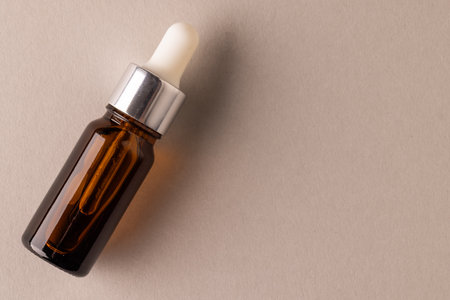Early Beginnings: Homeopathys Arrival in Britain
The story of homeopathy in the United Kingdom begins in the early 19th century, a time when the nation’s medical landscape was undergoing significant transformation. Conventional medicine, largely dominated by practices such as bloodletting and purging, often left patients seeking gentler alternatives. It was against this backdrop that homeopathy made its first quiet appearance on British shores, introduced by physicians and intellectuals inspired by Samuel Hahnemann’s revolutionary ideas from continental Europe.
Homeopathy’s guiding principle of “like cures like” attracted curiosity and scepticism in equal measure. Early advocates included Dr Frederick Quin, widely recognised as the first physician to practice homeopathy in London around 1828. Quin, well-connected within aristocratic circles, helped establish the London Homeopathic Hospital in 1849—an institution that would later become a cornerstone for the movement’s growth and legitimacy.
Despite these strides, the arrival of homeopathy was met with considerable resistance from the established medical community. The Royal College of Physicians and other mainstream bodies viewed this new system with suspicion, questioning both its scientific foundations and its challenge to traditional authority. Medical journals of the era were often scathing, dismissing homeopathic remedies as little more than quackery.
Nevertheless, early proponents persevered. They found support among segments of society weary of harsh medical interventions and receptive to a more holistic approach. This period also saw the formation of societies and dispensaries dedicated to homeopathy, laying down the roots for what would become a robust—if sometimes embattled—alternative tradition within British healthcare.
The early years of homeopathy’s introduction were thus marked by passionate advocacy, institutional opposition, and a gradual but steady rise in public interest. These formative experiences set the stage for later debates over regulation, integration, and acceptance within the broader UK medical establishment.
Victorian Expansion and Societal Adoption
The Victorian era was a transformative period for homeopathy in the United Kingdom. As the 19th century progressed, homeopathic practices began to flourish, thanks in large part to a growing dissatisfaction with conventional medical treatments of the time. During this period, homeopathy started to attract attention from all strata of British society, particularly among the upper and middle classes who were searching for gentler alternatives to harsh medical interventions.
Support from Notable British Figures
Homeopathy’s appeal was significantly bolstered by the endorsement of influential figures within British society. Among its advocates were members of the royal family, such as Queen Adelaide and later Queen Victoria herself, whose interest lent considerable prestige to the practice. The support from high-profile individuals not only fostered public trust but also encouraged more practitioners to explore and offer homeopathic services across the country.
Key Institutions Established
With rising demand came the establishment of several prominent institutions dedicated to homeopathic medicine. These organisations played a pivotal role in legitimising and expanding access to homeopathy during the Victorian era. Below is a summary of some key institutions founded during this period:
| Institution | Year Founded | Significance |
|---|---|---|
| The London Homeopathic Hospital | 1849 | Became a leading centre for research and treatment; later renamed Royal London Hospital for Integrated Medicine. |
| The British Homeopathic Society | 1844 | Helped set standards for practice and education in homeopathy. |
Cultural Integration and Social Impact
The proliferation of homeopathic dispensaries throughout cities like London, Liverpool, and Manchester further facilitated its adoption. Homeopathy became intertwined with broader Victorian values—such as self-improvement, scientific curiosity, and social responsibility—making it an appealing option for families seeking holistic care. By embedding itself in both elite circles and charitable initiatives, homeopathy secured a lasting foothold in British healthcare culture during this vibrant period of expansion.

3. The Professionalisation of Homeopathy
The mid-19th century marked a turning point for homeopathy in the UK, as practitioners sought to establish legitimacy and structure within the wider medical community. This drive for professional recognition led to the formation of dedicated homeopathic societies, which played a pivotal role in shaping the discipline’s identity and standards.
Among the earliest and most influential was the British Homeopathic Society, founded in 1844. This society provided a forum for practitioners to share research, discuss clinical cases, and advocate for the inclusion of homeopathic principles within mainstream medicine. It also fostered a sense of community and collective purpose among its members, who often faced scepticism from their allopathic counterparts.
In tandem with these societies, the establishment of homeopathic medical schools further cemented the professional status of homeopaths. The London Homeopathic Hospital (now the Royal London Hospital for Integrated Medicine), opened in 1849, became a flagship institution for training and clinical practice. Such institutions not only offered education but also acted as centres of innovation and public outreach, helping to demystify homeopathy for the British public.
The evolving professional identity of homeopaths was reflected in their efforts to set standards for education, ethics, and practice. Regulatory bodies emerged to oversee qualifications and ensure that practitioners adhered to recognised codes of conduct. This formalisation allowed homeopaths to distinguish themselves from unqualified healers, while also engaging with broader conversations about evidence-based medicine and patient safety.
Over time, this process of professionalisation helped homeopathy carve out a distinct niche within the UK’s healthcare landscape. While always somewhat on the periphery compared to orthodox medicine, homeopaths developed their own networks, journals, and conferences—contributing to a vibrant culture of debate and reflection that continues to shape the field today.
4. Regulatory Evolution and NHS Inclusion
The regulatory landscape for homeopathy in the UK has undergone significant transformation over the past century, reflecting wider societal attitudes and the evolving role of government oversight. From its early days as a fringe practice to its intermittent inclusion within the National Health Service (NHS), homeopathy’s journey has been marked by both legal milestones and public debate.
Early Legislation and Professional Recognition
In the Victorian era, homeopaths operated largely outside mainstream medical circles. However, the passing of the Medical Act 1858 began to shape formal recognition. Homeopathic practitioners established their own institutions, such as the Faculty of Homeopathy (founded in 1943), to standardise training and professional conduct, even as the General Medical Council maintained conventional medical standards.
The NHS Era: Integration and Scrutiny
With the founding of the NHS in 1948, a select number of homeopathic hospitals were incorporated into this new public healthcare system. This inclusion offered homeopathy both legitimacy and broader access. Over time, however, questions about efficacy led to increased scrutiny. The following table illustrates key developments in NHS policy regarding homeopathy:
| Year | Development | Impact on Homeopathy |
|---|---|---|
| 1948 | NHS founded; five homeopathic hospitals included | Wider patient access; official recognition |
| 2005 | NHS spending review on alternative therapies | Initial support continued but under review |
| 2010-2017 | NHS England guidance against funding homeopathic remedies | Significant decline in prescriptions; many services defunded |
| 2018 onwards | Homeopathy largely excluded from NHS except for rare cases | Mainly private provision; ongoing public debate |
Modern Oversight and Regulation
The regulation of homeopathic products also evolved considerably. The Medicines and Healthcare products Regulatory Agency (MHRA) introduced stricter licensing for homeopathic remedies, ensuring proper labelling and quality controls. Additionally, practitioners are now subject to oversight by voluntary registers such as the Faculty of Homeopathy’s Accredited Register, providing a level of consumer protection while maintaining professional standards.
Current Regulatory Landscape at a Glance:
| Aspect | Status (2024) |
|---|---|
| NHS Provision | Mainly excluded; some exceptions for chronic cases or patient request |
| Product Licensing | Mild remedies regulated by MHRA; must meet safety/quality criteria |
| Practioner Registration | Voluntary via professional bodies; not statutorily regulated |
| Government Stance | Cautious; prioritises evidence-based medicine in public health funding |
A Balancing Act Between Choice and Public Policy
This regulatory evolution reveals an ongoing tension: respecting patient choice versus upholding scientific standards in publicly funded healthcare. As debate continues, the UK’s approach remains adaptive—balancing tradition with modern expectations for safety, transparency, and efficacy.
5. Modern Controversies and Public Perception
In recent decades, homeopathy in the UK has faced mounting scrutiny and polarised opinions, both within the medical profession and among the general public. The question of efficacy—whether homeopathic remedies genuinely work beyond a placebo effect—has become a central point of contention. Numerous scientific reviews, including those commissioned by the NHS and bodies like the House of Commons Science and Technology Committee, have concluded that there is little robust evidence supporting homeopathys effectiveness for any specific health condition.
The Role of Evidence in Shaping Attitudes
The emphasis on evidence-based medicine in Britain has made the debate particularly pointed. Critics argue that public funds should not be allocated to treatments lacking empirical support, while advocates of homeopathy maintain that patient choice and anecdotal success stories warrant its continued availability. This clash between clinical trial data and personal experience creates an ongoing tension in discussions about complementary therapies.
NHS Funding and Policy Shifts
Reflecting these debates, the NHS has gradually reduced its support for homeopathic treatments. Many local Clinical Commissioning Groups have stopped funding such remedies altogether, citing concerns over cost-effectiveness and scientific validity. In 2017, NHS England issued guidance advising GPs not to prescribe homeopathic treatments due to “lack of robust evidence”—a move welcomed by some but lamented by others who value holistic approaches to healthcare.
Current Place in British Society
Despite official scepticism, homeopathy retains a small but passionate following in the UK. High street pharmacies often stock homeopathic products, and private practitioners continue to offer consultations. For some Britons, especially those seeking natural or personalised care, homeopathy remains part of their health routine. However, mainstream media coverage frequently highlights the controversies, reinforcing public perception of homeopathy as a contested practice rather than a universally accepted form of medicine.
As British society grows increasingly conscious of both scientific rigour and individual wellness choices, the role of homeopathy continues to evolve—caught between calls for regulation, demands for evidence, and enduring public curiosity about alternative ways to nurture health.
6. Homeopathy Today: Practice, Education, and Future Prospects
The Current Landscape for Practitioners and Patients
In contemporary Britain, homeopathy continues to occupy a unique space within the healthcare landscape. While mainstream acceptance may have waned compared to its Victorian heyday, a dedicated community of practitioners and patients persists. Most homeopaths in the UK now operate privately, offering consultations that emphasise holistic care and personalised treatment plans. The NHS has largely phased out funding for homeopathic services, with only a handful of clinics—such as the Royal London Hospital for Integrated Medicine—continuing to provide limited offerings. Despite this, many Britons still seek out homeopathy as a complement to conventional medicine, often motivated by its gentle approach and focus on overall wellbeing.
Educational Opportunities and Professional Standards
Homeopathic education in the UK has evolved significantly over recent decades. Today, aspiring practitioners can choose from accredited diploma courses and degree programmes offered by reputable institutions such as the College of Practical Homeopathy and the Centre for Homeopathic Education. Courses typically combine rigorous study of classical principles with modern clinical skills and patient-centred approaches. Professional regulation is overseen by voluntary bodies like the Society of Homeopaths and the Alliance of Registered Homeopaths, which set standards for ethics, continuing professional development, and insurance requirements. Although these organisations do not confer statutory regulation, their codes of practice contribute to public confidence and practitioner accountability.
Challenges and Opportunities Moving Forward
The future of homeopathy in the UK faces both challenges and opportunities. The prevailing scepticism among scientific circles, coupled with increased scrutiny from regulatory authorities such as the Advertising Standards Authority, means that practitioners must navigate a complex environment. Public debates about efficacy persist, shaped by evidence-based medicines growing dominance in policy-making. Nonetheless, there are signs of resilience: rising public interest in natural health solutions and integrative care may offer fresh relevance for homeopathic approaches, particularly when they are positioned as part of a broader commitment to lifestyle balance and preventative wellbeing.
Integrating Tradition with Innovation
For homeopathy to thrive in modern Britain, adaptation is key. Some practices have begun collaborating more closely with GPs, nutritionists, and mental health professionals to offer multidisciplinary care—a model that resonates with patients seeking comprehensive support for mind and body. Educational providers are also updating curricula to include critical thinking skills and evidence-informed practice alongside classical methodologies.
A Vision for the Future
Looking ahead, the most successful path for British homeopathy may lie in embracing transparency, ongoing research, and patient-centred values. By focusing on responsible communication about benefits and limitations, investing in high-quality practitioner training, and fostering open dialogue with other healthcare disciplines, homeopathy can continue to serve those who value its distinctive philosophy—while finding its place within a dynamic national conversation about health and healing.

